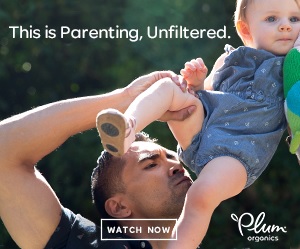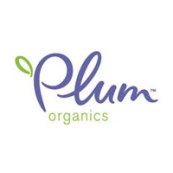Being a dad has never been easy, and today’s father might deal with more than any generation in the past.
Consider just a few of the conditions affecting dads nowadays: kids’ desires for unlimited access to social media websites, the seemingly slippery slope of sexualized media, incessant materialism, shifting economies, and the constant worry of violence in schools, if not everywhere.
It’s a nonstop pace of life with which dads can hardly keep up. Today’s plugged-in world might offer pockets of freedom here and there, but the sad trade-off is the expected work accessibility, no matter the time of day.
It hardly lets them have time to be, well, dads.
And that’s when the experts of Plum Organics and Fatherly decided to team up to take a close look at the work-life balance in relation to Plum’s successful Parenting Unfiltered campaign.
“Starting with our ‘Chief Dad’ and co-founder, Neil Grimmer, and bridging to other dads like me, we have in leadership roles at Plum today,” said Ben Mand, SVP marketing and innovation, Plum Organics. “Plum has a long history of advocating for caregiving, hands-on working dads everywhere. So when we decided to tackle work-life integration for Parenting Unfiltered, Fatherly, through their unique focus on millennial dads, was the perfect partner.”
The two entities are using the award winning #ParentingUnfiltered campaign – found notably at parentingunfiltered.com – to shine a light on the challenges surrounding work-life integration. Both believe the topic affects their brand, their consumers and American families.
“Together, we hope to inspire parents – particularly fathers, who struggle to be valued as caregivers both at home and at work, to take the filter off,” said Mand. “We want to catalyze candid discussions about what we can all do (as spouses, colleagues, employees, employers) to make the landscape better for everyone.”
 Though Fatherly came into existence around two and a half years ago, the site launched just last April as a go-to source for all things ‘dad.’ It made an instant splash when it unveiled its “50 best places to work for new dads,” garnering stories with several national media outlets, including USA Today and others.
Though Fatherly came into existence around two and a half years ago, the site launched just last April as a go-to source for all things ‘dad.’ It made an instant splash when it unveiled its “50 best places to work for new dads,” garnering stories with several national media outlets, including USA Today and others.
But it was Fatherly’s unique focus on millennial dads that offered the perfect match for Plum’s campaign.
“(Plum Organics) told us about their Parenting Unfiltered campaign, which struck a chord with us,” said Mike Rothman, co-founder and CEO, Fatherly. “It was a real authentic voice with a sense of unvarnished truth. They were looking to portray all the messier moments in parenting.”
The partnership’s different facets explore the complex state of working parents in America, which includes an ethnographic report; expert interviews with Stew Friedman of Wharton’s “Work-Life Integration Project” and Anne Marie Slaughter, author of the viral article “Why Women Still Can’t Have it All”; and, videos featuring an array of working parents from the street, each with poignant personal stories.
Slaughter’s article was originally printed in The Atlantic, and turned out to be the most popular article it has ever published.
The partnership has already surfaced some fresh, unfiltered thinking and actionable solutions that’ll help dads everywhere get to a better place. Some companies are already looking at more family-friendly work policies.
“The results were really inspiring and challenging,” said Rothman. “We’re looking at the nitty-gritty to broader issues. It’s a really amazing conversation. In that sense, we were able to take this content online into the real world. There are people struggling with these issues.”
 Plum notes that 75 percent of working parents are unhappy with their work-life balance, but are afraid to bring it up at the office, and, almost one in three parents have even faked being sick to meet a family obligation. As such, Rothman is proud of a campaign that talks about an issue which really wasn’t discussed head-on before, even as recent as 10 years ago.
Plum notes that 75 percent of working parents are unhappy with their work-life balance, but are afraid to bring it up at the office, and, almost one in three parents have even faked being sick to meet a family obligation. As such, Rothman is proud of a campaign that talks about an issue which really wasn’t discussed head-on before, even as recent as 10 years ago.
“There are a lot of companies who realize this isn’t just good marketing and communications, this is good for the bottom line of the company,” Rothman said. “Friedman has been able to prove that this isn’t just a marketing issue – you’ll improve your company. That’s part of the conversation that needs to happen.”
Rothman also notes that the way dads are portrayed in marketing and advertising is improving.
“Brands are wisening up,” he said. “Increasingly, it’s no longer just mom, it’s talking about parents. Marketers are catching themselves when they’re talking about just moms, because it’s about dads, too.”
For now, both Plum and Fatherly are excited to change the way parents look at work and how it affects their families.
“There’s a lot of legs to look at this in different ways,” Rothman said. “I would expect to collaborate with the Plum folks to take this campaign a bit further. It is really great for us because there aren’t as many (companies) that are as progressive as Plum.”

 We’re seeing a striking similarity with Dr. Smith’s latest ad, and ads from yesteryear that would be deemed offensive today.
We’re seeing a striking similarity with Dr. Smith’s latest ad, and ads from yesteryear that would be deemed offensive today.